How one level of Hitman lasts longer than most games
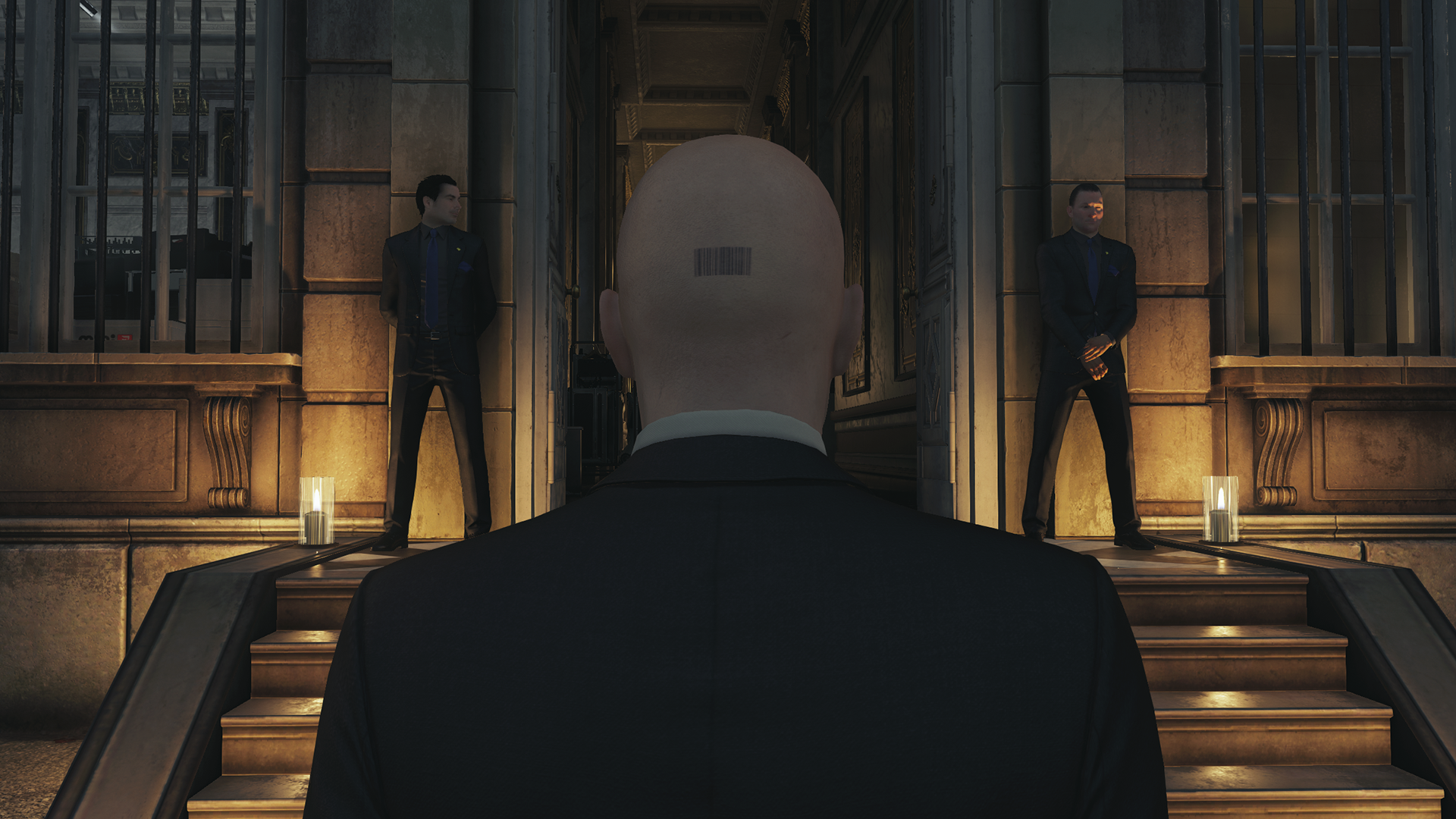
“Oh my fucking god, I can still kill people by pushing them down stairs!” is not exactly something you want the neighbours to hear you shouting (especially when accompanied by a laugh of joy). But these things happen when you’re playing Hitman. In fact, a great many things happen, or can be made to happen, and that's where the fun comes from.
What I love most about Blood Money is that the levels are complex playgrounds, stuffed with innovation and dark humour. I can experiment until my warped heart's content, then kill everyone with the garden shears to get a Special Rating of Florist - Florist! - just for the hell of it. Those were the days. Now they’re back, and the playground has re-opened. I wasn’t prepared for how big it is, though. I’m talking about Paris. The Showstopper.
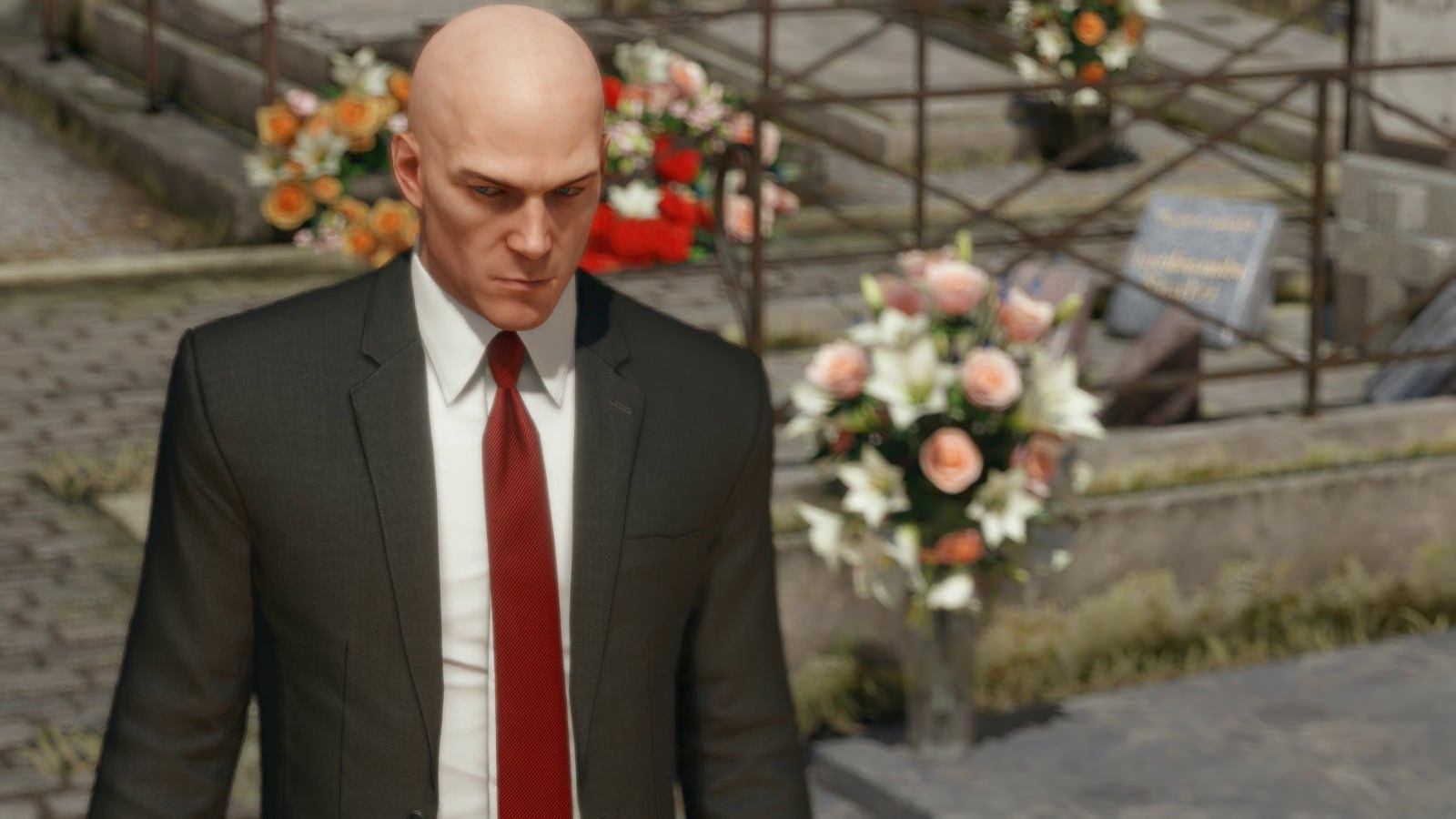
When I first heard that Square Enix was releasing Hitman in instalments, my eyes rolled. How could it ever expect to make one level - even in a game as busy as Hitman - last until it decided to dole out the next? I was stunned when I realised not only had Square done it, but that I might not have enough time before the next level landed.
As Agent 47 rocked up to the palace (sporting his white Blood Money Requiem suit, no less) I struggled to take everything in - gardens, parking areas, sheds, balconies, pavilions, rivers... And that’s just the outside. Inside, the palace is colossal. From wine cellars to IT hubs, balconies to staging rooms. It seems endless. Throw in several more floors of function rooms, offices, museums, attics… mind blown.
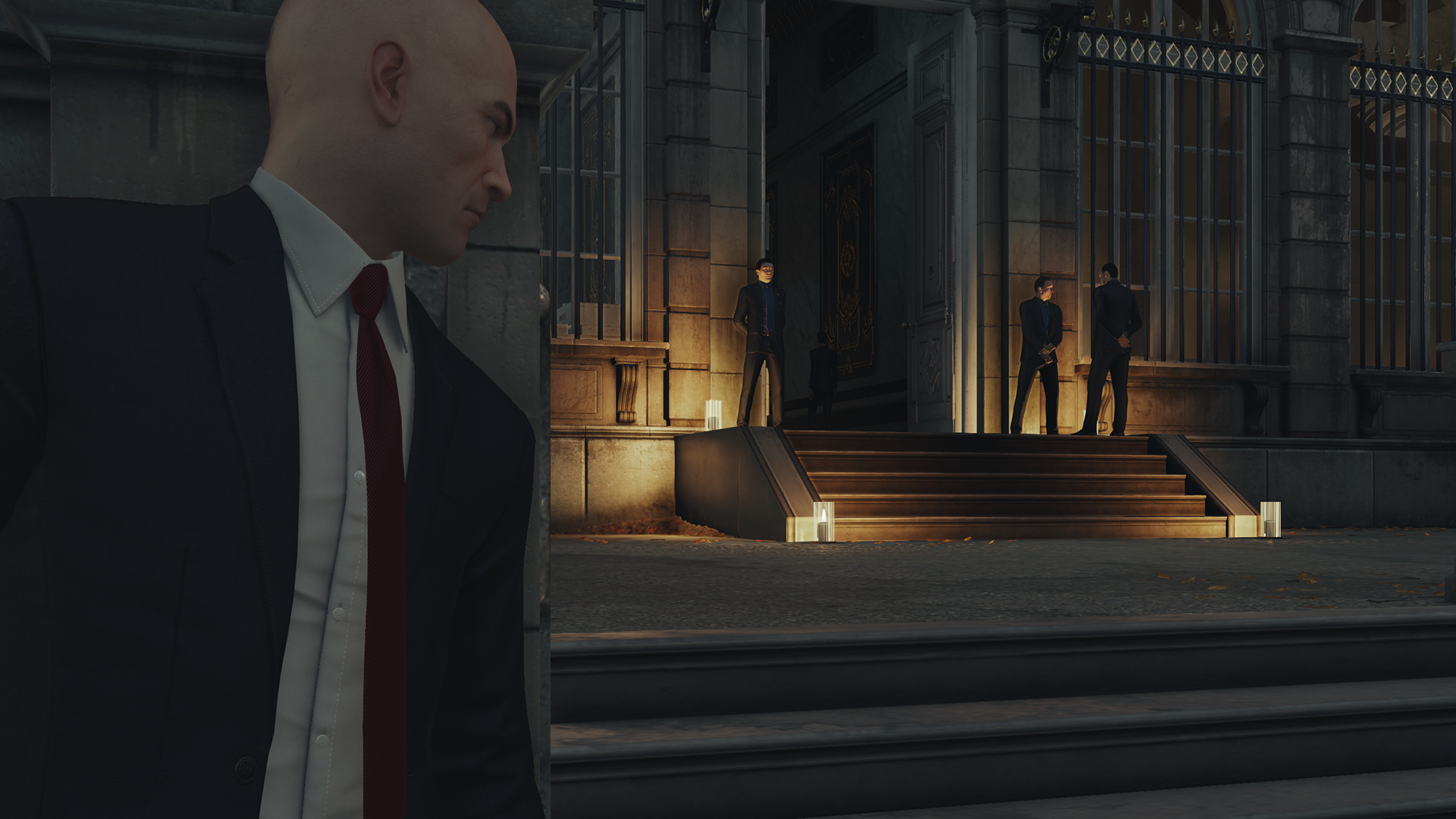
Working my way into the packed interior did nothing to diminish that awe. The palace has the complexity of Blood Money’s opera house in ‘Curtains Down’, with the crowds of ‘A Dance With the Devil’, and the sprawl of ‘You Better Watch Out’. As the scope and complexity of the palace and grounds sank in, I knew then that this game could be a worthy successor to Blood Money. It was a “Chewie, we’re home” moment.
My initial concerns about having just one level to play swiftly eroded. Just completing the basic mission can be a long task in itself. Discovering potential accident spots, finding weapons and tools, listening to conversations, watching patterns, waiting for blind spots. There’s always work to be done.
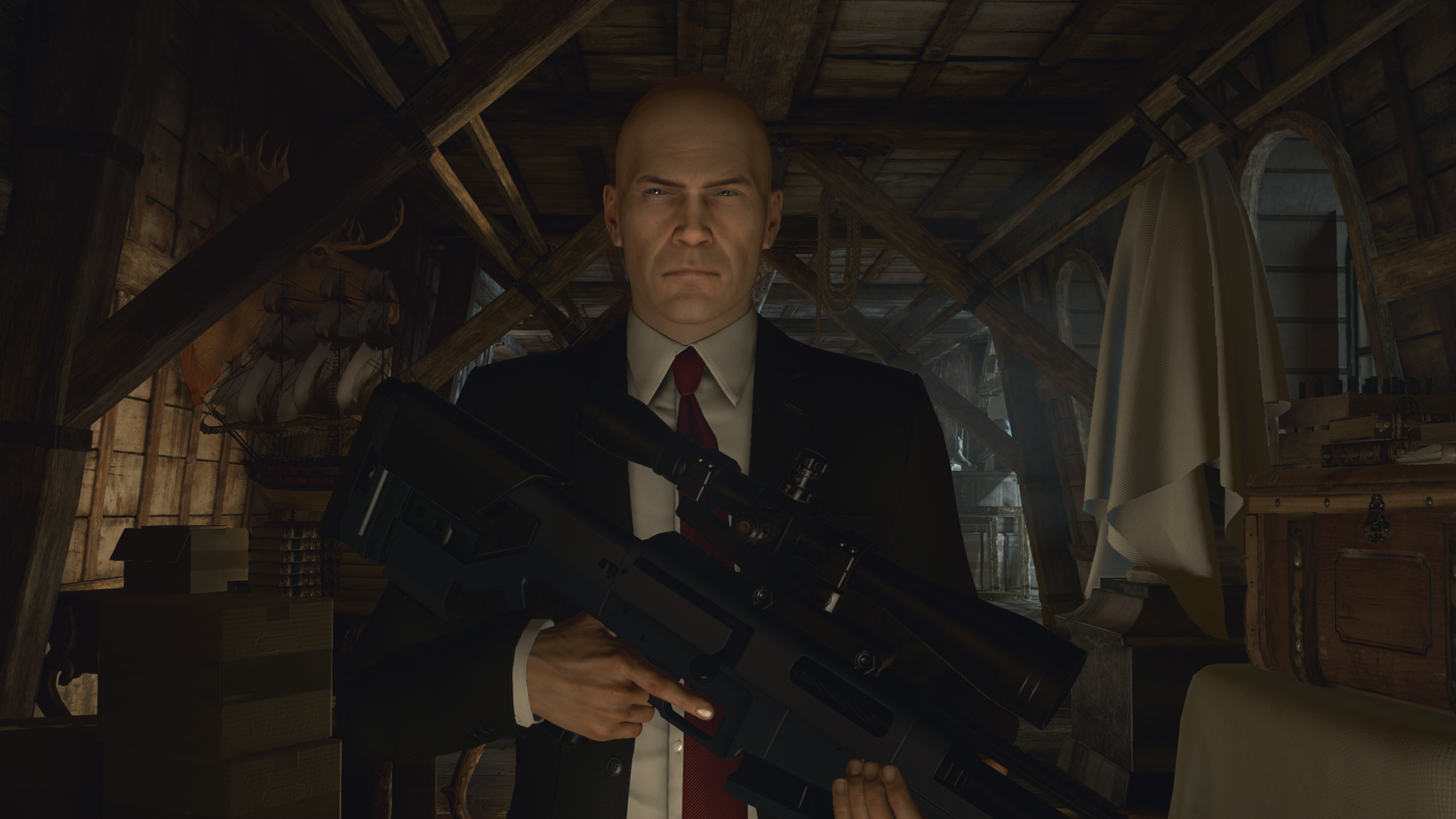
Putting that knowledge into practice, however, is another matter. It wasn’t until I realised I’d inadvertently poisoned the wrong wine glass, for example, that I wandered outside in a sulk and noticed a great opportunity for another potential accident. My mark was standing in a puddle of water, alongside a power cable that was just asking to be sabotaged.
Weekly digests, tales from the communities you love, and more
Following that, I was skulking around, trying to figure out the best way to isolate a bodyguard in order to steal their uniform, when I noticed one dragging a body-bag away with my erstwhile target inside. Intrigued, I followed this self-made opportunity to a dark corner of the gardens and availed myself of the chance at a new disguise.
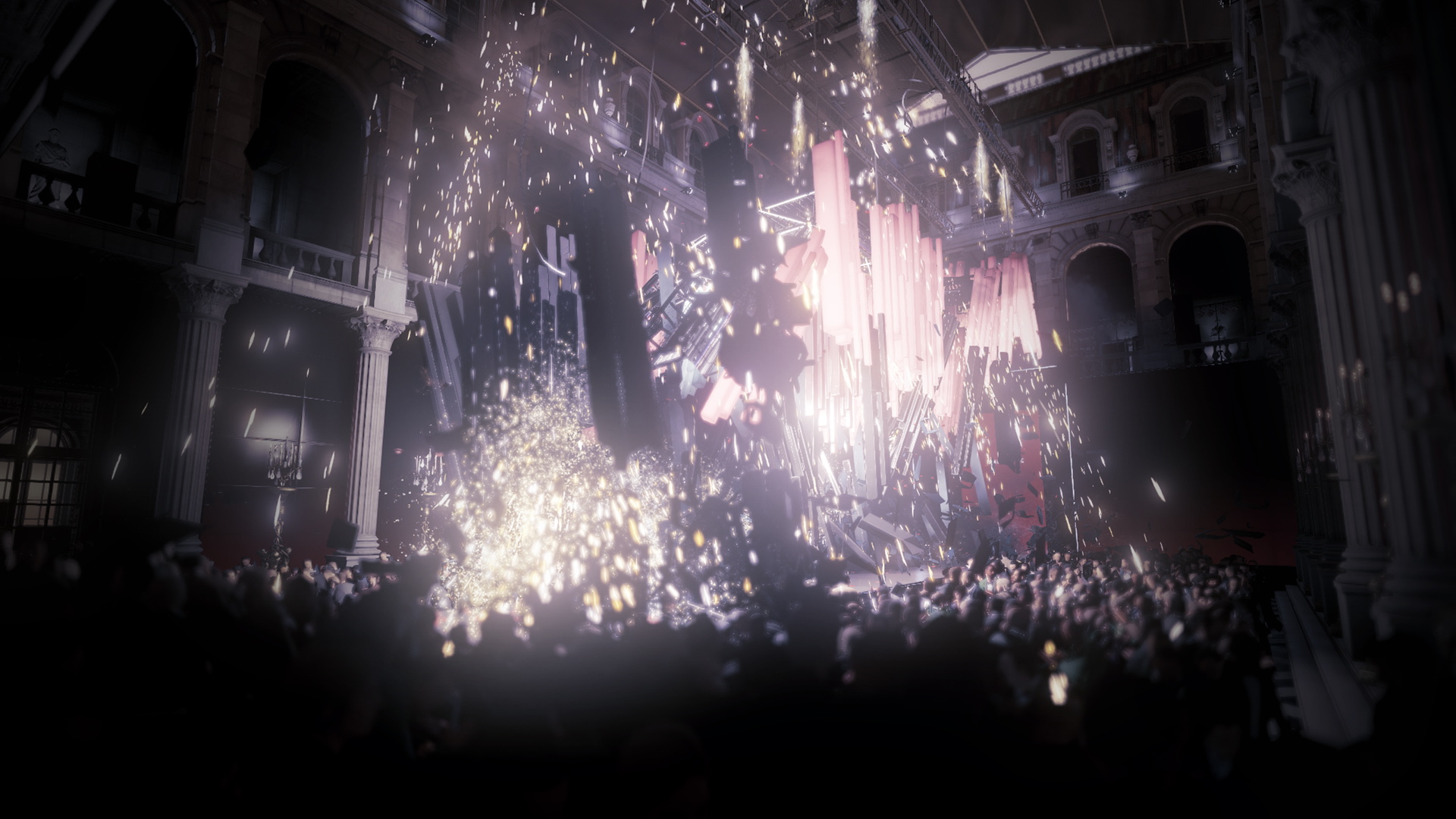
Hitman is a game of opportunity. If you allow yourself to just exist in its waters, you can discover so many ways to play. Just wandering, listening, poking in every corner of the world, from the basement to the junk-packed attics, can reveal so much to utilise. It wasn’t until I found myself hanging from a ledge, having shot my way up to the attic and then hidden, that I discovered a covert drainpipe leading from the ground floor. I’d have face-palmed, had I not been clinging on for dear life.
Getting pathetically lost in the basement was how I discovered the master key to the whole palace, just sitting on a crate. But that’s the sort of thing I mean. Until you explore and test the world - putting a drop of water onto the back of Laura Dern’s hand to see where it rolls - you have no real idea of what to expect. It’s beautiful, ordered chaos. In Hitman, you can run and gun, but discovering the unexpected - waiting for the butterfly to flap its wings - is always the most rewarding part.

With so much to find and do in Paris, there’s less chance of boredom setting in before the next instalment, and that’s without the game’s challenges, feats, opportunities, and escalations to help drain every last drop of blood from it.
So, my initial scepticism turned to appreciation. Paris is a generous, absorbing playground. Giving the players the chance to forge their story within a story has paid off. It sets the bar high, but can the devs keep up the pace with similarly complex levels? More importantly, am I ready for them?
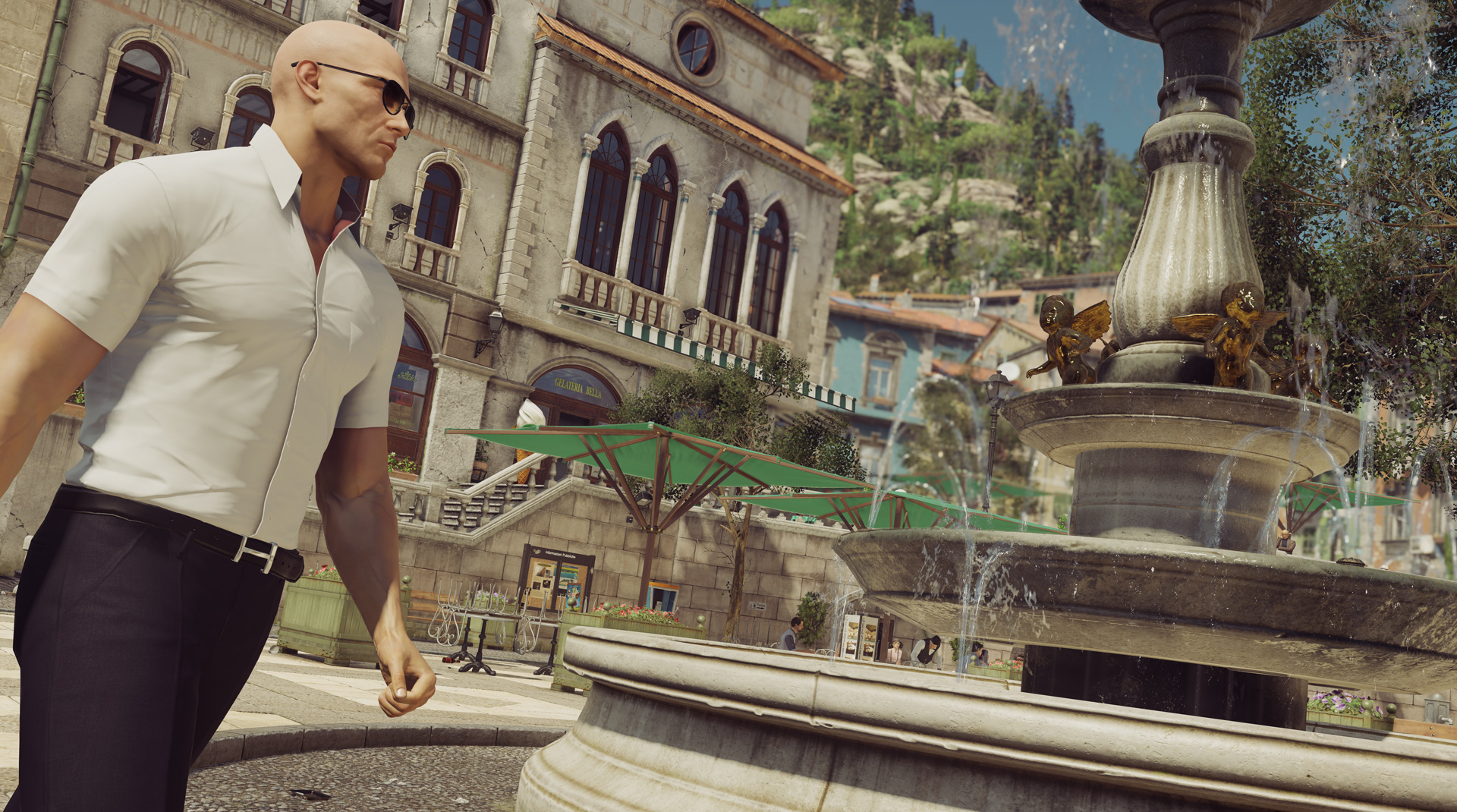
I never thought I’d be waving my arms, screaming at Square Enix to hang on, that I’m not ready for the next part of 47’s journey. I thought I’d be bored by now but, instead, I’m still dangling from lighting gantries, dropping chandeliers onto party guests, and trying not to electrocute myself in my own booby traps (yep, did that).
With such choice and chance comes the opportunity to not only walk your own path, but actually lay it. You make your mistakes and come home with spent cartridges, drainpipe chafing and a pocketful of stories to share. IO Interactive and Square Enix have given us a powerful, engaging sandbox, then buried a load of nasty, naughty things for us to play with. I’ve been so busy finding them all that I never noticed the time flying. The next has arrived, but I don’t know if I’m ready to rush into it yet, even though I was convinced way back that I would be. Suddenly, as much as I want more, I also want extra time to savour what’s here, and that’s perhaps the most surprising thing about the whole damn game.



